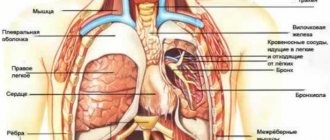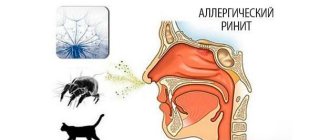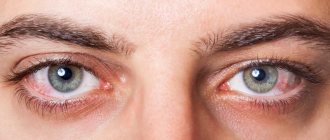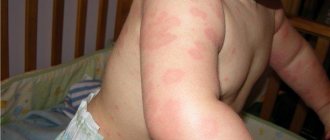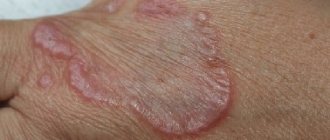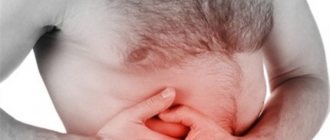Itching in the anal area is a pathological condition that occurs with a wide range of intestinal diseases. A person experiences constant discomfort that interferes with normal life activities.
In some cases, itching intensifies at night, interfering with sleep and rest. As a result, performance decreases, the patient becomes lethargic, irritable, depressed and apathetic.
In addition to itching and burning, the patient may experience other symptoms:
- redness of the skin;
- a change in the density of the skin near the anus - its thinning or, conversely, thickening;
- the appearance of rashes, weeping ulcers, eczema.
What is itching in the anus?
Itching is a painful, tickling sensation in the skin that causes an obsessive desire to scratch the affected area. Itching often occurs due to irritation of the skin near the anus. For example, with idiopathic itching, there is increased production of mucus by the intestinal walls. Fluid is constantly released from the anus, causing inflammation and redness of the surrounding tissues. This is what causes discomfort. But other reasons also lead to inflammation.
For example, with enterobiasis, painful itching occurs due to the movement of small parasitic worms - pinworms. The burning sensation intensifies in the dark, when the helminths move closer to the anus. This irritates the nerve endings, which causes an itchy burning sensation. But these are not all the factors due to which this pathological condition can develop.
What causes itching in the anus?
Anal itching is not always caused by pathological processes occurring in the body.
It may also be associated with external influences:
- using hard toilet paper that injures the skin;
- excessive or insufficient intimate hygiene;
- working in a room with dusty air.
Unsuitable soap or allergies to cosmetic fragrances also lead to skin irritation and can cause burning and itching.
Irritation of the anal area is caused by a variety of diseases:
- parasitic infestations;
- inflammation of hemorrhoids;
- fungal infections;
- genitourinary infections;
- neoplasms;
- insufficient function of the anal sphincter;
- diabetes mellitus and other severe chronic diseases.
In many cases, an unpleasant symptom occurs due to diseases of the rectum. Their spectrum is quite wide: skin neoplasms, chronic proctosigmoiditis, and dysbacteriosis can cause a burning sensation. Other symptoms gradually appear: for example, pain and pain during bowel movements, bloody and mucous clots in the stool, a feeling of pressure and heaviness in the lower abdomen. But the main symptom remains irritation and redness of the skin.
In women, itching may be associated with certain gynecological diseases. At the same time, it radiates not only to the anal area, but also spreads to the labia majora, labia minora, and vulva. The perineum becomes red and swollen, and copious discharge with an unpleasant odor appears.
The causes of burning are varied, so if it occurs, it is recommended to contact a medical center for examination by a proctologist.
Why there is itching in the anus - the main reasons
If you have complaints about anal itching, you can contact your doctor. After an initial examination, he will refer the patient to a specialist - a proctologist, gastroenterologist, infectious disease specialist, urologist or gynecologist. The patient may have to consult several specialists and undergo several tests.
At the initial stage of diagnosis, the doctor will consider specific symptoms, based on which it can be assumed that as a result of itching in the anal area. There are several dozen diseases with this symptom.
Pathologies of the rectum
The most common cause of itching in the anus in adults is diseases of the rectum. These include:
- external or internal hemorrhoids;
- chronic proctosigmoiditis;
- neoplasms in the rectum (polyps or cancerous tumors);
- neoplasms in the folds of the anus and around the anus (genital warts);
- anal fissures;
- anorectal fistulas.
If the itching around the anus is not accompanied by mucus and blood, and upon examination dry, flesh-colored formations are found, we are talking about genital warts.
Important! Benign neoplasms appear due to infection with the human papillomavirus (HPV). Under certain conditions, this infection provokes the formation of perianal condylomas and papillomas, which can then develop into anal canal cancer.
If, in addition to itching, the patient complains of pain in the rectum, discharge of blood and mucus, there is a high probability of proctological diseases - fissures, hemorrhoids, fistulas, etc. Unpleasant symptoms in such diseases worsen after defecation.
Pathologies of the genitourinary system
Itching around the anus can occur against the background of gynecological and urological diseases and infections of the genitourinary organs. The most common reasons for its appearance:
- candidiasis;
- chlamydia;
- trichomoniasis;
- gonorrhea and other STDs.
Sometimes it can be sexually transmitted herpes. You can recognize it by its watery bubbles (photo below).
There may be no signs other than itching in such pathologies. However, in most cases, they are indicated by discharge from the genital tract (green or purulent, in the form of foam or cottage cheese, mixed with blood, etc.), an unpleasant odor from the genitals, pain in the lower abdomen, rashes and weeping sores.
Important point! The mentioned diseases in 90% of cases are accompanied by enlarged lymph nodes in the groin. Sometimes this is the only sign, other than itching, that helps the doctor make the correct diagnosis.
Parasitic infections
The second most common cause of itching in the anus is infection with intestinal parasites - pinworms, roundworms, giardia. They are more likely to bother children and adolescents, causing severe discomfort after bowel movements and upon waking up. Additional signs by which helminthic infestations can be diagnosed:
- fatigue;
- drowsiness;
- allergic reactions (rash, runny nose);
- low-grade fever;
- nausea and/or vomiting;
- bloating;
- intestinal spasms and stool upset.
With ascariasis and enterobiasis, live or dead parasites are observed in the feces. Pinworms can be found near the anus on the skin or even on underwear. They especially often come out at night or in the morning.
Interesting fact! In 90% of cases, helminth infection occurs through contact with domestic animals and during play in outdoor sandboxes. This also occurs when there is contact with personal belongings of helminth carriers.
Intestinal diseases
Itching in the perianal area occurs with inflammatory and infectious bowel diseases, which are accompanied by prolonged diarrhea or constipation. Abnormal bowel movements provoke irritation of the mucous membrane of the rectum and anal folds, resulting in burning or itching.
Other reasons
In addition to the previously described diseases, severe itching in the anal area is also provoked by other pathological conditions:
- skin diseases - dermatitis, psoriasis, seborrheic eczema and lichen;
- allergic reactions;
- diaper rash;
- side effects when taking medications.
Some mental and nervous disorders also lead to severe itching, including an obsessive desire for cleanliness of the perineum, stress, and depression.
Regardless of what caused this unpleasant symptom, you should seek help from a doctor. Each of the described diseases does not disappear on its own, and over time leads to serious complications. Thus, as hemorrhoids progress, vascular thrombosis or rupture with heavy bleeding may occur, and anal fissures become easily infected and can develop into chronic paraproctitis.
The most dangerous itching is caused by rectal polyps. These seemingly harmless tumors often transform into cancer.
Itching around the anus
Skin lesions near the anus are associated with exposure to external and internal factors. The first includes:
- increased sweating. More often observed in people with excess body weight. Sweat begins to accumulate in the perineal area, irritating the skin. As a result, diaper rash appears, which serves as a source of discomfort;
- wearing tight synthetic underwear. Linen fabric disrupts natural air exchange and prevents normal moisture removal. Rough internal seams violate the integrity of the skin and impair blood microcirculation. All this creates favorable conditions for the development of pathogens.
If the irritation is caused by external causes, curing it is quite simple. The patient is advised to give up synthetic detergents (or choose hypoallergenic cosmetics tested by dermatologists) and choose natural, loose underwear with a comfortable cut.
Conditions associated with internal pathologies are more difficult to treat. For example, itching is the main symptom of dermatitis and psoriasis, lichen, and eczema. Dysbacteriosis and diarrhea can cause a burning sensation. Too frequent bowel movements have a negative impact on the condition of the mucous membrane: blood rushes to it, the tissues swell, become more sensitive - any touch is accompanied by pain. But there are also more serious reasons that disrupt the functioning of the sphincter.
For example, chronic metabolic disorders lead to the accumulation of toxins in tissue cells. As a result, the patient develops skin rashes that extend to the perineum. Therefore, itching accompanies diabetes mellitus, cirrhosis and liver tumors, and pancreatic pathologies.
Which doctor treats itching in the anus?
If the anal area becomes red and itchy, you should make an appointment with a proctologist. The specialist will listen to complaints, clarify family history, and conduct an initial examination. But to make an accurate diagnosis, examinations will be required, the range of which will be determined by the doctor.
Typically studies include:
- blood and urine tests;
- irrigoscopy;
- colonoscopy;
- sigmoidoscopy;
- anoscopy and other intestinal examinations.
In some cases, consultations with other doctors are required: a urologist or gynecologist, endocrinologist, dermatovenerologist. Referrals to them are given by a proctologist. Based on the results of the tests, the disease causing irritation in the anal area is determined, and the appropriate treatment is selected.
Diagnostics
A physical examination provides valuable information. Upon visual examination, the coloproctologist reveals maceration and rashes in the perianal area. During a digital rectal examination, the doctor can palpate enlarged hemorrhoids and large tumors. To clarify the etiological factors of burning in the anus, the following instrumental and laboratory methods are used:
- Sigmoidoscopy.
During an endoscopic examination of the anal canal, inflammatory, ulcerative and tumor processes of the anus are diagnosed. The method is informative for assessing the degree of enlargement of hemorrhoids and detecting cicatricial changes in the anus. For patient comfort, sigmoidoscopy can be performed under anesthesia. - Ultrasound.
Sonography is a quick and painless method that helps detect neoplasms and signs of the spread of inflammatory processes to surrounding tissues. Men must undergo transrectal ultrasound examination (TRUS) of the prostate to ensure the absence of urological diseases. - Anal manometry.
A technique for assessing sphincter tone is necessary to confirm fecal incontinence or, conversely, pathological spasm of the anal muscles. To clarify the diagnosis, specialists in the field of proctology use electromyography data of the anal sphincter. - Coprogram.
The presence of mucus and a large number of leukocytes in the stool indicates an acute inflammatory process in the anus. With ulcerative defects and neoplasms, blood impurities are found in the stool. Additionally, feces are examined for eggs of helminthiasis pathogens. - Additional research.
Sometimes a burning sensation in the anus is caused by colonic pathology, so plain radiography of the abdominal cavity, irrigoscopy, and colonoscopy are recommended. If suspicious formations are identified during endoscopy, a biopsy specimen is taken for histological examination.
Treatment of hemorrhoids using the HAL-RAR method
Why does the anus hurt?
In some patients, the itching turns into aching or cutting pain in the anal area. The attacks differ in duration and intensity, radiating to the lower abdomen, lower back, and lower spine. The severity of the pain syndrome and its specificity are determined by the pathological disorder that led to the appearance of pain.
Doctors can diagnose:
- anal fissure. It is usually diagnosed after mechanical trauma to the sphincter and surrounding tissues - for example, during difficult childbirth or after an accident. The mucous membrane “cracks” and exposes the muscles, which leads to severe pain. Painful spasms occur when visiting the toilet, performing hygiene procedures, or touching the affected area;
- anorectal fistula. A fistula is a pathological channel between the intestines and the skin of the buttocks. The fistula itself is usually painless, but mucus and other waste products are constantly released from it, which leads to constant irritation of the surrounding tissues. The skin becomes inflamed, swollen, red and itchy;
- haemorrhoids. A common cause of pain and heaviness in the anal area. With hemorrhoids, the hemorrhoidal nodes located next to the sphincter become inflamed. If the nodes are slightly enlarged (the disease is at the initial stage), then the patient experiences discomfort only when bowel movements. But as the pathology progresses, acute pain appears with any touch to the tailbone area - it becomes impossible to sit. Other symptoms of hemorrhoids include: bleeding from the anus, the appearance of cracks in the mucous membrane;
- chronic proctosigmoiditis. This is the name for inflammation of the lower intestine, which occurs with clearly defined periods of remission. During periods of exacerbation, the patient's temperature rises, a sensation of a foreign body in the anus and severe itching pain;
- intestinal tumors. The appearance of neoplasms in the gastrointestinal tract is also accompanied by pain and burning. The closer the tumor is to the anus, the more pronounced discomfort the person will experience.
Constipation (due to hardening of stool, creating pressure on the intestinal walls) or diarrhea can lead to pain in the anus. Often severe pain occurs due to impaired blood flow in the gluteal muscles, for example, from a prolonged forced sitting position. Truckers or people, freight forwarders encounter this manifestation. The exact cause can only be determined after an examination.
If treatment is not started, the disease worsens and other signs of pathologies gradually develop:
- fever;
- discharge from the anus;
- mucus in stool;
- dysfunction of the gastrointestinal tract;
- pain in the abdominal area.
The patient loses his appetite, experiences nausea after eating, and his weight changes dramatically. The skin becomes pale, moist, with a grayish tint. If such signs appear, it is recommended to make an appointment with a doctor as soon as possible. Pain and burning in the anus may indicate a serious pathology that requires immediate treatment.
Treatment for anal itching
Prolonged severe itching in the anus should not be ignored, since it may indicate pathologies of varying degrees of severity. The anal area is very sensitive and can become irritated for various reasons. Sometimes anal itching becomes so persistent and unbearable that the patient is ready for any treatment to quickly get rid of the discomfort. The condition significantly reduces a person’s quality of life, and all other symptoms often fade into the background. At risk are people who are overweight, suffer from recurrent fungal diseases, chronic problems of the intestines and rectal area, diabetics, as well as all those who neglect hygiene standards.
Causes of anal itching
The range of reasons that provoke severe itching sensations in the anus is very wide. Experts classify primary (true) and secondary perianal itching. If in the first case the proctologist only has to find a problem that affects the appearance of symptoms, then in the second it is an additional symptom of a previously diagnosed proctological disease.
Secondary itching occurs with the following coloproctological diagnoses:
- haemorrhoids;
- proctitis, colon tumor and other intestinal pathologies;
- anal fissure in the chronic stage;
- sphincter insufficiency (incontinence due to weakness of the orbicularis muscle);
- genital perianal condylomas, rectal condylomatosis.
Also, severe periodic itching in the anus can be accompanied by:
- development of parasitic infection;
- recurrent skin disease (eczema, psoriasis);
- fungal infection of the perineum and anus;
- inflammatory diseases of the pelvic organs;
- ailments associated with metabolic disorders (pancreatitis, diabetes, etc.);
- mechanical trauma to the anus (for example, when using a hard washcloth or after depilation in the anal area).
Irritation in the perianal area can be caused by poor-quality hygiene products, certain contraceptives, and can also be a consequence of excessive love for spicy food. Discomfort in the anal area may be the body's reaction to prolonged use of antibiotics and other medications. In any case, only a proctologist can determine the true cause of severe itching in the anus.
Diagnosis, identification of causes of perianal itching
Many patients suffer regular itching attacks in the anal area for months. Some believe that there is no danger in this. Others are simply embarrassed to consult a doctor with a delicate problem. Since the symptom is not a clear sign of any specific disease, a comprehensive diagnosis is necessary. Unpleasant sensations may be secondary, so the proctologist needs to rule out other dangerous pathologies.
In cases where the symptoms do not go away even with careful hygiene of the anus, this is a compelling reason to consult a proctologist. If you do not pay due attention to the problem, it can lead to the formation of anal fissures, the treatment of which will require significant effort due to infectious contamination of the tissues of the anorectal area.
Diagnostic examination combines the following methods:
- visual inspection;
- palpation (a method of digital examination of the anal canal);
- blood test;
- endoscopic examination of the colon mucosa (colonoscopy, rectoscopy);
- sphincterometry (in case of suspected functional insufficiency of the orbicularis muscle);
- Ultrasound of the abdominal cavity and gastroscopy (for prolonged digestive disorders).
At the diagnostic stage, experts also recommend testing for the presence of anogenital herpes. Of course, there is not always a need for extensive comprehensive diagnostics. Often, a coloproctologist determines the cause at the first examination and selects adequate therapy.
Warning signs for the physician conducting the initial examination are the presence of bloody diarrhea, large external hemorrhoids or a protruding internal node, a draining fistula, noticeable compaction of the tissue around the anus, and fecal contamination of the perianal area.
Treatment
Eliminating the root cause of severe itching in the anus is the main goal of treating the disease. In each individual case, a special approach is required and medications are prescribed to treat anal itching:
- when discomfort is caused by helminthic infestation, anthelmintic therapy is prescribed;
- if the disease is infectious, antibiotic therapy is carried out;
- if the problem is caused by fungal flora, fungicidal drugs are used;
- for coloproctological diseases, treatment is required according to indications, including surgical intervention (for example, removal of a hemorrhoid or excision of a non-healing anal fissure);
- when the anal area periodically itches and burns against the background of systemic chronic diseases - therapy is complex, lengthy and individual.
Unreasonable itching of the anus - treatment
Rarely, but there are still situations where a comprehensive diagnostic examination does not reveal any cause of itching in the anus. At the same time, the problem negatively affects the usual way of life, causes sleep disorders, plunges into a state of neurosis, and so on. Then the patient is prescribed sedatives, ointments to relieve symptoms, and the diet is adjusted.
When should you urgently contact a proctologist?
It is never recommended to postpone a visit to the doctor if alarming symptoms appear, and in some cases this can be life-threatening. Make an urgent appointment with a proctologist if anal itching is accompanied by:
- soreness and sensation of a foreign object in the anus;
- you found traces of blood in the stool or on sanitary napkins;
- at least one of your relatives suffered from colorectal cancer.
How is anal itching treated in children?
Usually, a pediatrician is involved in diagnosing and combating such problems in a child, but sometimes he may additionally recommend a consultation with a proctologist. As a rule, the features of treatment for itching of the anus in children are related to this origin. It can be called:
- parasitic infection;
- allergic manifestations;
- bacterial infection;
- fungal infection;
- failure to comply with hygiene rules.
Less commonly, more serious diseases (psoriasis, diabetes) become the cause of anal itching; in such cases, there are different methods of treatment. However, the symptoms of such ailments are typical. This allows you to quickly diagnose the problem and quickly relieve the child of obsessive feelings.
Prevention
Just a few simple rules can reduce the risk of unpleasant symptoms and improve your overall quality of life:
- a rational and balanced diet (not only will help avoid itching and burning, but will also have a positive effect on the general condition of the gastrointestinal tract);
- rejection of a number of fashion trends in favor of high-quality and comfortable underwear made from natural materials;
- competent attitude to hygiene procedures (too frequent use of detergents can also cause irritation in the perineum and perianal area).
Specialist in the treatment of anal itching in Rostov-on-Don
If diagnosis and treatment are refused, due to constant scratching, scars appear around the anus, the surface becomes wet, and ulcers form. The infection quickly penetrates the tissues and paraproctitis develops - a purulent disease of the anorectal area. This is just one of many possible scenarios.
If you are concerned about symptoms associated with persistent itching and burning in the anal area, which cannot be resolved by ordinary hygiene measures, you do not need to endure and suffer! Make an appointment with the best proctologist in Rostov-on-Don, who conducts appointments in private proctology on the street. 2nd Five-Year Plan, 29/5. A competent and sensitive specialist - colo-proctologist will conduct an initial diagnosis, prescribe the necessary studies and relieve you of discomfort in a short time. Remember that delay is fraught with complications, and timely treatment of severe itching in the anus is relatively easy. You will be able to immediately return to your work responsibilities and normal life without experiencing the same painful symptoms.
Sharp pain in the lower abdomen, radiating to the anus
Quite often, women encounter this type of pain in the middle of the menstrual cycle. The pain occurs due to the rupture of the follicle when the egg is released. The process is accompanied by a local increase in temperature in the ovaries, which further aggravates the discomfort. But these are natural processes that do not cause concern.
Similar pain occurs during menstruation. It can be very pronounced and quite long (up to two days). You should not take painkillers or hormonal medications on your own - it is better to contact a supervising gynecologist to prescribe antispasmodics.
But pain in the lower abdomen may also indicate pathologies:
- inflammation and accumulation of fluid in the retrouterine area;
- adhesions affecting the reproductive organs;
- ovarian cyst;
- ectopic pregnancy.
If sharp pain occurs in men, it may be caused by inflammation of the appendix. Along with the pain, nausea, general weakness, and heart rhythm disturbances occur. But sometimes painful sensations in the abdomen are caused by ordinary constipation and flatulence. However, if a person regularly experiences indigestion or suffers from regular constipation, this may be a sign of a serious pathology. It is worth making an appointment with a gastroenterologist or proctologist.
Causes of anal itching and risk groups
There can be many prerequisites for the appearance of this disease. Below are the main reasons that can lead to irritation in the anus:
- Diabetes.
- Eczema.
- Seborrheic and contact dermatitis.
- Cracks in the anus.
- Liver diseases.
- Tumors (malignant and benign).
- Manifestation of allergies to certain medications, soap, anesthetics.
- Fistulas in the anus and rectum.
- Psoriasis.
- Infectious diseases (pediculosis, scabies, dermatomycosis).
- Enzyme deficiency.
- Pancreatitis that has become chronic.
- Skin diseases.
- Lack of compliance with basic rules of personal hygiene.
- Synthetic underwear, which causes irritation, dryness, and impedes air flow (especially for women).
- Using personal hygiene products that are not suitable for you (foam and gel for intimate areas that irritate the skin of the perianal area).
As you can see, the reasons for the occurrence of pathology are mainly divided into 2 groups: those associated with excessive moisture in the anus and proctological problems. We cannot exclude the possible presence of parasites (pinworms, roundworms, etc.), due to which night itching is especially common. In women, the development of pathology can be caused by gynecological diseases in which vaginal secretion is disrupted. In cases where it is not possible to determine the cause of the disease, many experts are inclined to believe that the patient has a special form of mental disorder that causes a desire to scratch the perianal area.
What could be the reasons for the disease in you? It is better to discuss this with your doctor. Remember, you should not self-medicate, especially for women who are embarrassed to come to an appointment with a proctologist. It is much more difficult to combat the advanced stage of the disease, and there is also a risk of triggering the development of new diseases. If you find discomfort in your anus, consult a doctor immediately!
The group of people most susceptible to the disease share some of the following common characteristics:
- Obesity.
- Neglect of personal hygiene rules.
- Excessive sweating.
- Close contact with pets.
- Anal sex.
- Using rough toilet paper after defecation.
- Genetic predisposition to constipation, diarrhea, diabetes and fungal diseases.
- Interaction with harmful substances (work in chemical plants, in high temperature conditions, in dust, radiation).
Why does pain radiate to the anus during pregnancy?
Pregnant women periodically experience unpleasant pain radiating to the anal sphincter area. Discomfort is caused by a number of factors:
- Fetal growth leads to increased pressure on the intestines. Internal organs become compressed, blood flow to them deteriorates and metabolic processes slow down. To compensate for this effect, the veins swell and expand, which gradually worsens the elasticity of the intestinal walls and leads to the formation of hemorrhagic nodes;
- in the last trimester, the organs of the peritoneum are compressed and displaced, experiencing a lack of nutrients. This affects their functioning - in particular, pregnant women may suffer from constipation or diarrhea, which is also accompanied by painful sensations in the anus;
- During pregnancy, the body's immune defense decreases and inflammatory processes worsen, pathogenic microflora activates, and dysbacteriosis often develops.
Fetal growth also affects intestinal motor functions. Peristalsis worsens, which leads to frequent constipation. The situation is aggravated due to the woman’s low mobility in the last stages of pregnancy. To avoid problems with the gastrointestinal tract, it is recommended to balance your diet, and if unpleasant symptoms recur, consult an experienced doctor.
When pain occurs at 8-9 months of pregnancy, it may indicate the onset of labor or “false contractions.” Therefore, the appearance of the slightest discomfort cannot be ignored - this can negatively affect the health of the mother and her unborn child.
How to get rid of itching in the anus?
If itching and burning appears in the anal area, you need to make sure that it is not caused by external factors. Perhaps you recently changed your intimate hygiene product and the itching is caused by an allergic reaction.
In this case it is necessary:
- remove cosmetic residues from the skin;
- wear loose, comfortable-shaped underwear made of cotton, silk or other natural materials;
- choose soft, fragrance-free toilet paper.
By eliminating the external irritant, you will get rid of the itching. But if, in addition to irritation, you find symptoms such as:
- rashes on the buttocks;
- the appearance of condylomas;
- weeping sores.
In this case, it is recommended to seek advice from a proctologist or dermatovenerologist as soon as possible. Most likely, the patient has a skin infection caused by a bacteria, virus, or fungus. The doctor will prescribe the necessary tests to detect the pathogen and select the appropriate treatment.
If independent attempts to cope with the itching do not bring results for more than a day, the burning and stinging intensifies, or new symptoms of disorders appear, you should not self-medicate. Many diseases can cause discomfort in the anal area, and the sooner they are detected, the higher the likelihood of a quick recovery without complications.
What is anal itching - main signs and symptoms
It is very simple to distinguish pathological itching in the anal area from short-term irritation of the perianal area. Pathological is considered a symptom that occurs, if not constantly, then regularly. The majority of patients who sought medical help complaining of daily discomfort associated with certain situations:
- eating;
- eating certain foods;
- going to the toilet;
- body position;
- human activity.
Anal itching can occur for no apparent reason. However, it causes significant inconvenience and reduces the patient’s quality of life. An attack of severe itching can last from several minutes to several hours.
Pathological itching does not go away on its own, becomes longer and more intense, and in most cases is complicated by inflammation of the skin around the anus. In this case, itching and burning, tingling and swelling of the anal folds become a constant companion for the patient.
Additional symptoms that accompany itching in the anus indicate pathological processes:
- discharge of mucus from the anus;
- anal bleeding (traces of blood visible on stool and/or paper);
- sensation of a foreign object in the anus;
- intestinal disorders (diarrhea, flatulence, constipation);
- rashes in the perineum;
- acute pain during bowel movements;
- discharge from the genital tract.
All of these conditions require proper treatment. However, before you start, you need to find out what exactly caused the itching.
Without knowing the reasons why the anus itches and burns, it is impossible to select effective treatment methods. If you pay attention only to eliminating this symptom, the disease will progress.
How to treat itching in the anus?
The treatment regimen depends on the diagnosed disease. If the itching is caused by parasitic infestation, anthelmintic drugs are prescribed. In case of contact dermatitis, the doctor prescribes antihistamine tablets and topical ointments.
Typically, complex treatment is carried out, which may include:
- physiotherapy. They improve blood circulation in tissues, promote rapid healing and normalization of the rectum. Reduce the severity of pain and help alleviate the patient’s condition;
- taking antiviral and antimicrobial drugs. Prescribed if pain and itching are caused by pathogenic microorganisms. Targets the pathogen;
- painkillers. For intense pain, novocaine blockades are prescribed.
Medicines and procedures are selected depending on the diagnosed disease, the patient’s current state of health, and the characteristics of his body. The proctologist monitors the progress of treatment until the patient recovers completely.
What to do if you have severe pain in the anus?
When faced with severe pain near the anus, it is recommended to contact a medical center for qualified help. You should not self-medicate - taking painkillers only masks the symptom, while the disease will progress. There is also no need to rely on folk remedies. They are not effective and, in some pathologies, can only aggravate the patient’s condition.
To make an accurate diagnosis, it is necessary to undergo a series of laboratory and instrumental examinations. Based on their results, the doctor will determine the cause of severe pain and select effective therapy.
Simple prevention will help reduce the risk of proctological disorders:
- do not allow blood to stagnate in the gluteal muscles - when working sedentarily, try to get up regularly and do a little warm-up;
- balance your diet - add enough vegetables and fruits with plenty of fiber. Plant fibers stimulate intestinal motor function and help maintain muscle tone;
- do not abuse alcohol, spicy, salty and smoked foods. These products irritate the mucous membrane and provoke inflammation;
- balance your work and rest schedule - increased psycho-emotional stress can also cause intestinal problems.
Persons at high risk (overweight, difficult childbirth, family history of inflammation and tumors of the gastrointestinal tract) are recommended to undergo regular preventive examinations in the proctology department.
3
0
0
Article rating:
3.75 out of 5 based on 4 ratings
Author: Kutepova Ekaterina Vladimirovna
Surgeon-proctologist. Candidate of Medical Sciences. Highest category. Work experience 15 years.
Treatment
Help before diagnosis
To reduce burning in the anal area, you need to carefully maintain hygiene. The perineum is washed with warm water after each bowel movement, and when mucus or pus is discharged from the anus, water procedures are performed more often. To prevent maceration of the skin, it is necessary to wear soft cotton underwear, and in case of heavy discharge, use special pads.
Soap and other chemicals used for hygienic purposes should be thoroughly rinsed off, as residual products can cause severe burning. For comfortable cleansing of the perianal area, it is recommended to have damp toilet paper that does not injure the skin and does not aggravate discomfort. You can take medications only after a visit to a proctologist, who will find out the cause of the discomfort and select therapy.
Conservative therapy
Treatment of any proctological disease begins with a special diet. The diet limits fatty, salty and spicy foods, and reduces the content of coarse fiber. The gentle menu provides a soft consistency of stool to prevent constipation and make bowel movements as painless as possible. Taking into account the etiology of burning in the anus, the following are prescribed:
- Rectal suppositories
. Suppositories with anti-inflammatory and emollient components quickly eliminate itching and burning in the rectum and improve the patient’s well-being. Medicines facilitate the act of defecation, envelop the rectal mucosa and protect it from damage. - Antibiotics
. In acute proctitis, drugs quickly eliminate the pathogenic pathogen, prevent the spread of the inflammatory process and the development of paraproctitis. If the pathology is caused by worms or protozoa, other etiotropic drugs are recommended: anthelmintic, antiprotozoal. - Hormones
. Taking corticosteroids in short courses can quickly relieve inflammation and swelling in severe proctitis and exacerbation of hemorrhoids. For allergic etiology of anal burning, treatment is supplemented with antihistamines. - Phlebotropic agents
. Drugs to strengthen the venous walls are used for hemorrhoids to prevent the nodes from enlarging and bleeding from them. In the acute period, local combination drugs are indicated that have venotonic and analgesic effects.
For targeted administration of medicinal substances into the anus, microenemas with local anesthetics, chamomile decoction, and oil solutions are used. After the acute process subsides, sitz baths with potassium permanganate and a perineal shower are prescribed. To eliminate burning and pain, physiotherapeutic effects are used: laser radiation, diadynamic therapy, ultrasound.
